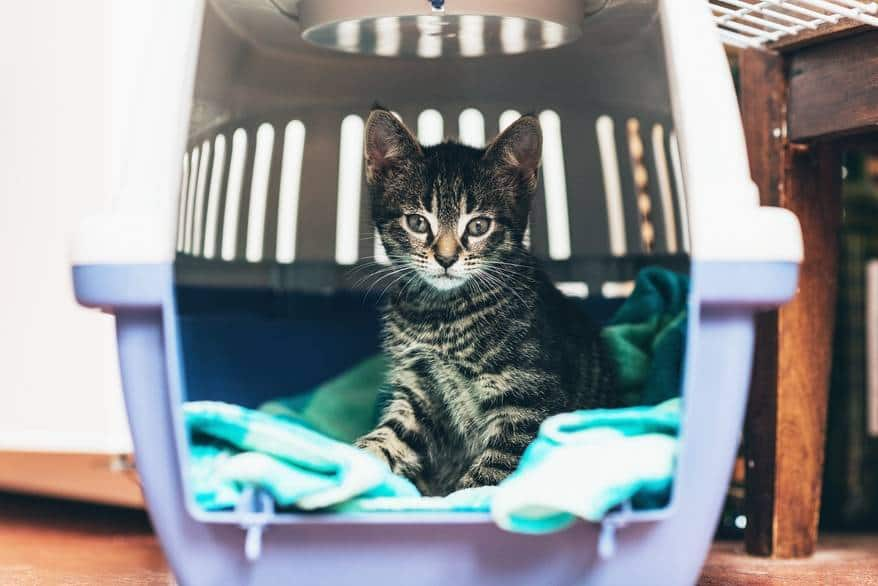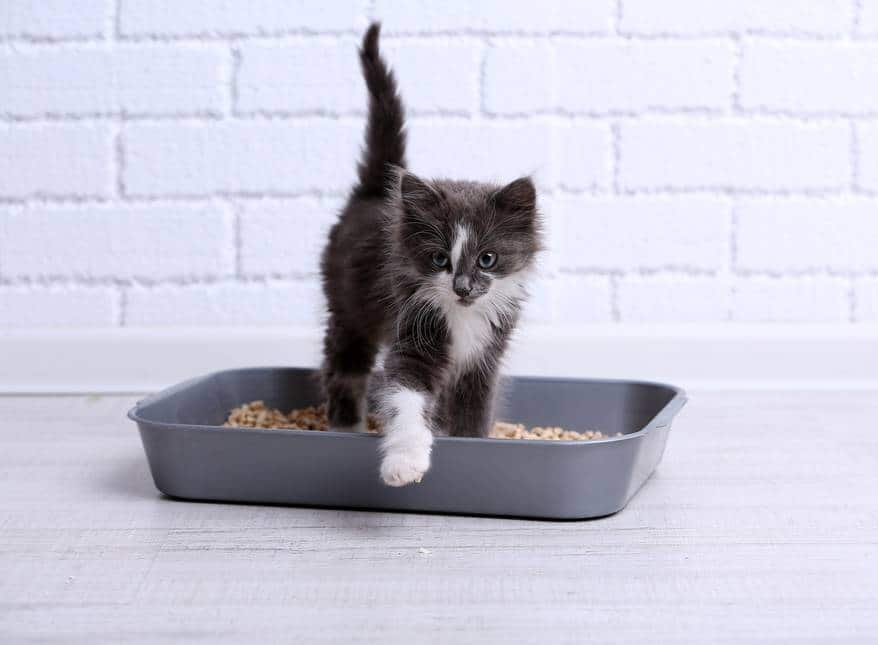
-
Find the right food for your pet
Take this quiz to see which food may be the best for your furry friend.
Find the right food for your pet
Take this quiz to see which food may be the best for your furry friend.
Featured products
 Puppy Lamb Meal & Brown Rice Recipe
Puppy Lamb Meal & Brown Rice RecipeVital nutrients to support 5 essential building blocks for lifelong health
Shop Now Adult Small Bites Lamb Meal & Brown Rice Recipe Dog Food
Adult Small Bites Lamb Meal & Brown Rice Recipe Dog FoodSupports lean muscle, for dogs who prefer smaller kibble
Shop Now Adult Small Bites Chicken & Barley Recipe Dog Food
Adult Small Bites Chicken & Barley Recipe Dog FoodSupports lean muscle for dogs who prefer smaller kibble
Shop NowFeatured products
 Kitten Chicken Recipe
Kitten Chicken RecipeVital nutrients to support 5 essential building blocks for lifelong health
Shop Now Adult Indoor Chicken Recipe Cat Food
Adult Indoor Chicken Recipe Cat FoodSupports energy level and beautiful fur in indoor cats
Shop Now Kitten Healthy Cuisine Tender Chicken & Rice Medley
Kitten Healthy Cuisine Tender Chicken & Rice MedleyDelicious tender chicken and rice in a mouthwatering sauce with precisely balanced nutrition to support 5 essential building blocks for lifelong health
Shop Now -
Dog
- Dog Tips & Articles
-
Health Category
- Weight
- Food & Environmental Sensitivities
- Urinary
- Digestive
- Joint
- Kidney
-
Life Stage
- Puppy Nutrition
- Adult Nutrition
Cat
- Cat Tips & Articles
-
Health Category
- Weight
- Skin & Food Sensitivities
- Urinary
- Digestive
- Kidney
-
Life Stage
- Adult Nutrition
Featured articles
 The Incredible Science Behind Your Pet's Microbiome
The Incredible Science Behind Your Pet's MicrobiomeLearn what a pet's microbiome is, how it contributes to your pet's gut & overall health, and why nutrition is important in maintaining healthy microbiomes.
Read More Water
WaterDiscover why water is the most important nutrient for your dog or cat to live a healthy life. Find out how much water your pet should consume each day.
Read More Pet Food Storage Tips
Pet Food Storage TipsDiscover how and where to store your dry, as well as canned, dog and cat food. Learn how to find the "best before" dates on all Hill's pet food packaging.
Read More -
Find the right food for your pet
Find the right food for your pet

Bringing home and raising a new kitten is an experience that's loaded with challenges and rewards. Whether you're considering getting a kitten or have already welcomed a fuzzy little bundle of joy into your life, you no doubt want to be the best pet parent. Keep reading to learn all about kittens and how to give your tiny friend the best start in life.
All About Kittens: What to Expect
Raising a kitten is an entirely different experience from having an adult cat. Kittens have boundless energy and curiosity, which means they require a lot of your time and energy. Not only do new kittens need lots of affection and playtime to be properly socialized, but they also require a ton of supervision to keep them out of trouble. The truth is that kittens, while charming and lovable, can be exhausting. Keep in mind that the kitten stage doesn't last forever, and your cat will never be this small or cute again. Enjoy this time — the bond you form with your kitten will last their entire life.
Preparing for Your Kitten
 For life with your new kitten to run smoothly, make a few preparations before bringing them home.
For life with your new kitten to run smoothly, make a few preparations before bringing them home.
Kitten-Proof Your Home
First, ensure your kitten's safety by viewing each room from their eye level and checking for any possible hazards. Close or block off windows, vents, and any nooks or crannies they might be tempted to explore. Move power cords, window blind cords and any other strings out of reach. Remove small objects that might pose a choking hazard if swallowed.
Purchase Supplies
You'll need a number of supplies to help care for your kitten. Here are the basic items you should stock up on before bringing them home:
- Quality kitten food
- Cat treats
- Food and water dishes
- Litter box and cat litter
- Cat bed
- Cat carrier
- Collar and ID tags
- Cat brush and/or flea comb
- Toothbrush and pet-safe toothpaste
- Scratching post and kitten-safe toys
Set Up a Base Camp
Set aside a quiet area as a "base camp" for your kitty to get used to their new surroundings. This space should be off-limits to other pets, and young children should only be admitted with adult supervision. Furnish the space with a litter box, food and water dishes, comfortable bedding, a scratching post and a toy. Keep the food and water away from the litter box, as cats don't generally like to eat near where they do their business — then again, who does?
This base camp will serve as a safe space for your kitten to get to know you and get used to the strange sounds and smells of their new home. If you have other pets, keep the door closed or use a pet gate to keep them out. Wait until your new kitten has had their shots and received a clean bill of health from your veterinarian before introducing them to other animals. Then, gradually allow your other pets to meet the kitten by approaching the gate, where they can sniff each other from a safe distance. Once they appear to accept one another's presence with no signs of aggression, allow them to make full contact under supervision.
Feeding Your Kitten
Ideally, kittens remain with their mother and litter mates until they're at least 8 weeks old. By this point, they should be fully weaned and able to regulate their own body temperature. If, however, you find yourself in the position of caring for newborn or infant kittens, you must keep them warm and bottle-feed them kitten formula every two hours. In cases like this, it's best to consult your vet about a proper feeding schedule and other special considerations.
Typically, though, when you bring home your new kitten, they'll already have been weaned onto solid food. If possible, ask the prior guardian or the shelter to supply you with a week's worth of the food they're currently eating. You may decide to continue feeding them the same brand and type of food. If you change their food, though, do so slowly to prevent digestive problems. Mix a small amount of the new food with the old food, and gradually increase it over the course of a week.
Whatever you decide to feed them, look for a quality food that's specially formulated for growing kittens. Kitten food should be formulated to meet the Association of American Feed Control Officials nutritional profiles for growth or clinically tested to meet all requirements for growing kittens. Adjust your kitten's feeding schedule by age:
- Up to 6 months: Feed your kitten three to four times per day. At this stage of rapid growth and development, kittens require a lot of calories. It might be easier at this stage to free-feed your kitten by leaving a bowl of kibble where they can access it whenever they're hungry.
- 6 to 9 months: As your kitten reaches sexual maturity and their growth slows, they'll need fewer calories and shouldn't be overfed.
- 9 to 12 months: By 12 months, your cat is no longer a kitten. As they approach adulthood at 9 months, you can begin transitioning them to adult cat food. You should also start keeping an eye on their weight to make sure they're not being overfed.
Along with quality kitten food, make sure your kitten has easy access to clean, fresh water. Avoid giving them milk. Despite what you might have heard about cats enjoying a bowl of milk or cream, they can't properly digest dairy and it might upset their stomach.
Training Your Kitten

Litter Box Training
Litter box training should be one of your top priorities on your kitten's first day home. Kittens that stay with their mothers until they're fully weaned usually learn a litter box's purpose by watching their mothers. Typically, your kitten will already know what to do, and your only job will be to show them the box. You may need to remind them where the box is and use positive reinforcement, such as treats and praise, until they get used to using it on their own without prompting. At this stage, it might be helpful to have a couple of litter boxes around the house to make sure they have easy access to one while they're figuring things out.


Tasty Tips
Obedience Training
Beyond potty training, training a kitten is usually about establishing and reinforcing boundaries and household rules. Again, rely on positive reinforcement to train your kitten, and avoid punishing or speaking harshly to them. Never hit or shake your kitten. Instead, ignore them when they're behaving badly and give them affection, treats and praise to reward their good behavior. If ignoring them isn't an option, redirect their attention to something else. For example, if your kitten bites or scratches your hand, give them a toy to play with instead. If they scratch the furniture, redirect them to a scratching post or pad. If all else fails, give them a timeout by confining them to their base camp until they calm down.
Despite what you may think, cats are trainable in other ways, too. Much like puppies, kittens are smart and have the capacity to learn — even if their independent nature may make it seem otherwise. Training any pet takes patience. Start with something simple, such as teaching them to "come" when called by name. Then, you can slowly introduce other commands, such as "sit," "lie down" and "stay." It's important to use positive reinforcement if you want these actions to continue as they get older.
Socializing and Playing With Your Kitten
Kittenhood is a crucial time for socializing your cat. In order for them to grow into a well-balanced adult, you should play with them frequently and expose them to new sights, sounds, smells and sensations. Kittenhood is the best time to get them used to routines such as wearing a collar, riding in a pet carrier and car, and tolerating grooming tasks such as bathing, brushing, nail trimming and tooth brushing.
Throughout, remember that they're still a kitten and are experiencing the world for the first time. There may be moments when sights or sounds frighten them. In these cases, comfort them, acknowledge they're overstimulated and take them back to their safe place to rest. As they start to get used to these things, you can slowly introduce more stimuli. However, you might be surprised at how their curiosity and fearlessness lead them to explore more than you'd think. How else can you explain a small kitten willing to snuggle up next to a large dog?
Beyond socialization, kittens need to be played with to get exercise. Play helps form a bond between the two of you and helps get the blood flowing for them, which is vital to their healthy development. Set aside time each day to play with them to ensure they get enough exercise. Play will also help ensure your kitten is tuckered out before bedtime.
Creating a Sleep Space for Your Kitten
Kittens sleep a lot at a young age — between 16 and 20 hours a day. For this reason, it's important that they have a comfortable place to take a nap and sleep at night. You might be tempted to keep them in your bedroom, but unless that's where you want to keep their litter box, it's best to section off somewhere in the house that's just for them. This will allow them to get comfortable in their own space without disturbing yours. While it's not uncommon for kittens to wake up in the middle of the night and meow loudly, hoping to get your attention, do your best to ignore them. Slowly, they'll learn that nighttime is for sleeping and you're not going to come to them every cry.
Scheduling Your Kitten's Vaccinations and Health Checks
Take your kitten for a health check within a week of coming home. On the first visit, your vet should check for parasites and other health concerns and administer your kitten's first round of vaccinations if they haven't had them yet. Vets are a wonderful resource for everything from nutrition to behavioral concerns, and building a strong relationship with your vet is key to getting the support and advice you need as your cat matures. So, think of this initial visit as the start of a lifelong partnership.
After the first visit, your kitten will need to go back to the vet every two to four weeks for a physical examination, weight check, parasite checks, feline immunodeficiency virus and leukemia virus testing, and vaccine boosters as needed. Your vet will likely talk to you about internal and external parasite control, spay/neuter surgery and nutrition — follow their recommendations. These visits are great times to ask your vet any questions you have about your kitten's care, behavior or feeding.
Raising a kitten can be challenging, but the reward is years of love, loyalty and affection — not to mention the satisfaction of watching your cat grow from a tiny fluff ball into a sleek and healthy adult. And remember: Your vet is here to guide you along the way. Now that you know all about kittens and how to raise them, you're well equipped to provide your new kitten with a welcoming home and a great life.


Jean Marie Bauhaus is a pet parent, pet blogger, and novelist from Tulsa, Oklahoma, where she usually writes under the supervision of a lapful of fur babies.
Related products

Supports energy level and beautiful fur in indoor cats

Delicious roasted chicken and rice in a mouthwatering sauce

Delicious tender chicken and rice in a mouthwatering sauce with precisely balanced nutrition to support 5 essential building blocks for lifelong health

Vital nutrients to support 5 essential building blocks for lifelong health
Related articles

What is the best food for an overweight cat? Learn all about weight control food for cats, including what's in it and how it works.

Discover how to identify cat sensitive skin and what you can do to help your cat thrive from head to paw.

Brushing your cat's teeth is just as important as brushing your own. Learn signs or oral health problems in your cat and how to avoid them.

Learn the different factors that might be contributing to your cat's weight gain, and how bigger doesn't always mean better.

Put your cat on a diet without them knowing
Our low calorie formula helps you control your cat's weight. It's packed with high-quality protein for building lean muscles, and made with purposeful ingredients for a flavorful, nutritious meal. Clinically proven antioxidants, Vitamin C+E, help promote a healthy immune system.
Put your cat on a diet without them knowing
Our low calorie formula helps you control your cat's weight. It's packed with high-quality protein for building lean muscles, and made with purposeful ingredients for a flavorful, nutritious meal. Clinically proven antioxidants, Vitamin C+E, help promote a healthy immune system.

